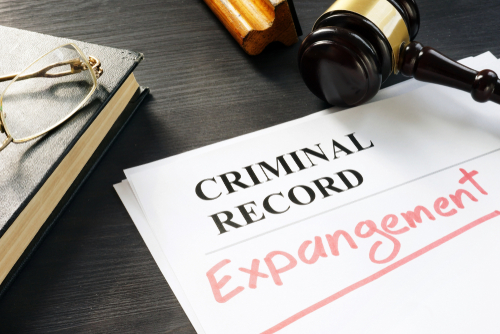The Impact of Criminal Records and How Nashville Defense Attorneys Can Help Expunge Them

Introduction
Understanding and addressing various crucial aspects is key when navigating the legal landscape of clearing a criminal record. From collecting necessary documents to understanding the functions of different legal entities, the expungement process is complex and diverse. This involves gathering the required paperwork, expecting the process steps, and addressing possible disputes. Furthermore, acknowledging the wider consequences of a criminal record on personal relationships, financial stability, and immigration status is crucial. Comprehending these factors can greatly impact the result of a request for expungement and assist people in effectively handling their legal and personal obstacles.
.Collecting Essential Paperwork for Clearing Criminal Record
In order to back up an expungement request, various essential documents and evidence are necessary. This involves a verified document of the criminal history being expunged, verification of fulfilling all court-ordered programs or penalties, and proof of exhibiting positive behavior post the offense. Moreover, it is necessary to collect documentation confirming adherence to probation or parole terms, along with relevant court or police records. Compiling thorough documentation is essential in order to make a strong argument for expungement. Nashville Criminal Defense Attorneys can help with acquiring and arranging these papers, making sure all necessary details are correctly submitted to the court to improve the chances of a successful expungement request.
What to Anticipate when Submitting an Expungement Petition
After filing an expungement petition, the procedure consists of multiple steps. At first, the court will assess the petition to confirm it complies with all legal standards. A lawyer can help by drafting the petition and making sure it is properly filled out and filed. Following submission, the court will schedule a hearing to examine the petition. In the hearing, the petitioner might have to offer more details or answer questions. The defense lawyer has an important part in advocating for the petitioner during the proceedings, making arguments, and dealing with any problems that come up. After the hearing, the court will decide on the expungement request. An experienced lawyer can assist in guiding through this procedure, dealing with any possible issues and improving the likelihood of a positive result.
The District Attorney’s Role in the Expungement Process
The District Attorney’s office has a major impact on the expungement process. Their participation might involve examining the petition, offering feedback or disagreements, and advocating for the state or any victims. The District Attorney can evaluate the petitioner’s criminal record and behavior to decide if the expungement should be challenged. It is essential to grasp the District Attorney’s viewpoint and possible worries in order to achieve a successful expungement. A defense lawyer may respond to concerns from the dui lawyer Nashville by making arguments in support of expungement eligibility. Through skillful management of interactions with the District Attorney’s office, the defense attorney aids in navigating the intricacies of the expungement process and enhances the chances of a positive outcome.
The impact of a criminal record on family and relationships.
A criminal record can significantly impact personal and familial relationships. Frequently, it results in societal disapproval and can cause tension in relationships with family, friends, and partners. Possible paraphrase:
Emotional stress, lack of trust, and isolation can all result from the impact. Family relationships could shift as members come to terms with the consequences of the situation, causing potential disagreements or arguments. Children and spouses may also experience social consequences, like criticism from others or alterations in their own chances. Having a criminal record can pose difficulties in sustaining healthy relationships and impact the overall well-being of a family.
The Monetary Consequences of Possessing a Criminal Record
Having a criminal record can have significant financial consequences. In addition to possible court fines and legal fees, having a criminal record can affect one’s ability to earn money and find employment opportunities. People with a criminal history may encounter challenges finding work, resulting in decreased earnings or job insecurity. The record could also impact one’s ability to qualify for specific professional licenses or housing options, leading to additional financial instability. Furthermore, expenses related to legal and administrative processes involved in trying to remove a criminal record can contribute to the financial strain. It is important to comprehend these financial expenses in order to effectively deal with the overall effects of having a criminal record on one’s life.
Difference between Expungement and Pardons: What is the Distinction?
Expungement and pardons are two separate legal solutions for dealing with a criminal record, each with their own unique processes and results. drug lawyer nashville Expungement is the process of legally erasing or hiding a criminal record so that individuals can appear to have a clean record in many situations. A petition to the court and meeting specific eligibility criteria are usually needed. On the other hand, a pardon is a formal forgiveness given by a governor or president that can lessen some of the legal repercussions of a conviction, like reinstating specific rights or decreasing punishments. Nevertheless, pardoning someone does not erase their record from public view, but it can improve their chances by recognizing their rehabilitation and good behavior. Comprehending these variances aids in selecting the right legal solution according to personal situations and objectives.
Challenges and Hurdles in the Process of Expungement
The process of expungement can come with various legal challenges and hurdles. Typical problems involve satisfying requirements for qualification, like waiting periods and the types of crimes, which can differ depending on the location. Certain records, such as those related to severe or violent offenses, may not qualify for expungement. Moreover, errors in procedure, like lack of documentation or failing to meet deadlines, could lead to delays or disruption of the process. Objections from the Office of the District Attorney or other entities may also present substantial challenges. Successfully navigating these obstacles typically entails extensive preparation, which includes collecting all required paperwork, comprehending legal obligations, and appropriately handling any dissenting opinions. Hiring a skilled defense lawyer can assist in navigating these challenges, making sure the application is correctly submitted and addressing any issues promptly, thereby improving the likelihood of a successful expungement.
The impact of criminal records on immigration status
Having a criminal record can greatly affect one’s immigration status and the process of becoming a naturalized citizen. Immigrants may face deportation, visa challenges, or refusal of naturalization applications due to specific criminal convictions. Immigration officials review criminal backgrounds to assess eligibility for immigration benefits, and small offenses can still result in significant outcomes. Having a criminal record may impact requests for status adjustment, employment authorization, and travel permits. In certain situations, being convicted may make someone ineligible to enter the United States or be deported. Recognizing these consequences is essential in handling any possible problems with immigration status and considering solutions like legal remedies or expungement to lessen the consequences of a criminal record.
In conclusion
Achieving a clean criminal record through expungement necessitates careful attention to detail and a comprehensive grasp of the legal procedure. Individuals can increase their likelihood of success by gathering the appropriate paperwork, following the necessary steps, and handling any objections from the District Attorney’s office. Also, recognizing the wider consequences of a criminal record, including its effects on family relationships, financial security, and immigration status, can aid in creating a holistic plan for the future. Selecting a skilled defense lawyer can offer important assistance in overcoming legal obstacles and reaching a favorable outcome, ultimately helping individuals to regain control of their lives and opportunities




